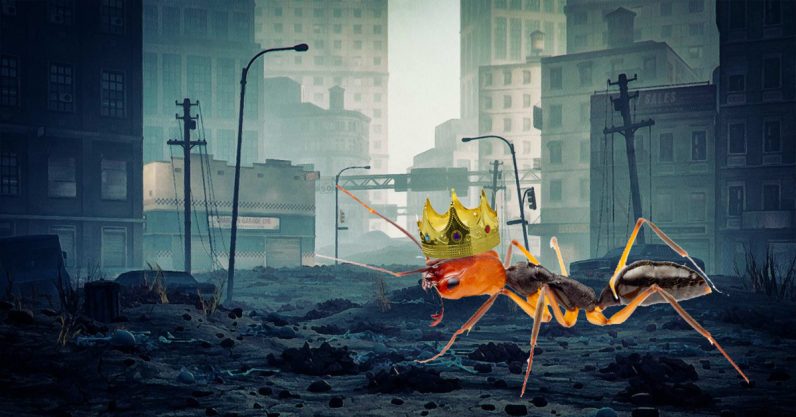
If humans disappeared, which species would dominate the Earth?
November 4, 2019
In a post-apocalyptic future, what might happen to life if humans left the scene? After all, humans are very likely to disappear long before the sun expands into a red giant and exterminates all living things from the Earth.
Assuming that we don’t extinguish all other life as we disappear (an unlikely feat in spite of our unique propensity for driving extinction), history tells us to expect some pretty fundamental changes when humans are no longer the planet’s dominant animal species.
Mark your calendar for 15:00 CET on November 11
So if we were given the chance to peek forward in time at the Earth some 50m years after our disappearance, what would we find? Which animal or group of animals would “take over” as the dominant species? Would we have a Planet of the Apes, as imagined in popular fiction? Or would the Earth come to be dominated by dolphins, or rats, or water bears, or cockroaches or pigs, or ants?
The question has inspired a lot of popular speculation and many writers have offered lists of candidate species. Before offering any guesses, however, we need to carefully explain what we mean by a dominant species.
One could argue that the current era is an age of flowering plants. But most people aren’t imagining Audrey Two in Little Shop of Horrors when they envision life in the future (even the fictional triffids had characteristically animal features – predatory behavior and the ability to move).
So let’s keep the discussion to animals. This is for practical rather than philosophical reasons: by some standards, the world is now and always has been dominated by bacteria despite the nominal end of the “age of microbes” some 1.2 billion years ago. This was not because bacteria ceased to be, or declined in prevalence, but rather because in our myopia we tend to place more importance on the large multi-cellular organisms that came after.
By some accounts, four out of five animals is a nematode (a roundworm), so from all these examples it’s clear that neither prevalence, abundance nor diversity is the prime requisite for being a “dominant” form of life. Instead, our imaginations are captured by large and charismatic organisms.
There’s an undeniable degree of narcissism in the human designation of dominant species and a strong tendency to award the title to close relatives. The Planet of the Apes imagines that our closest primate relatives could develop speech and adopt our technology if we gave them the time and space to do so.
But non-human primate societies are unlikely to inherit our dominance of the earth because the apes are likely to precede us to extinction. We are already the only living hominid that’s conservation status is not endangered or critically endangered and the kind of global crisis that would extinguish our species is unlikely to spare the fragile remaining populations of the other great apes. In fact, any...











 What we do
What we do





















 Contact US
Contact US

